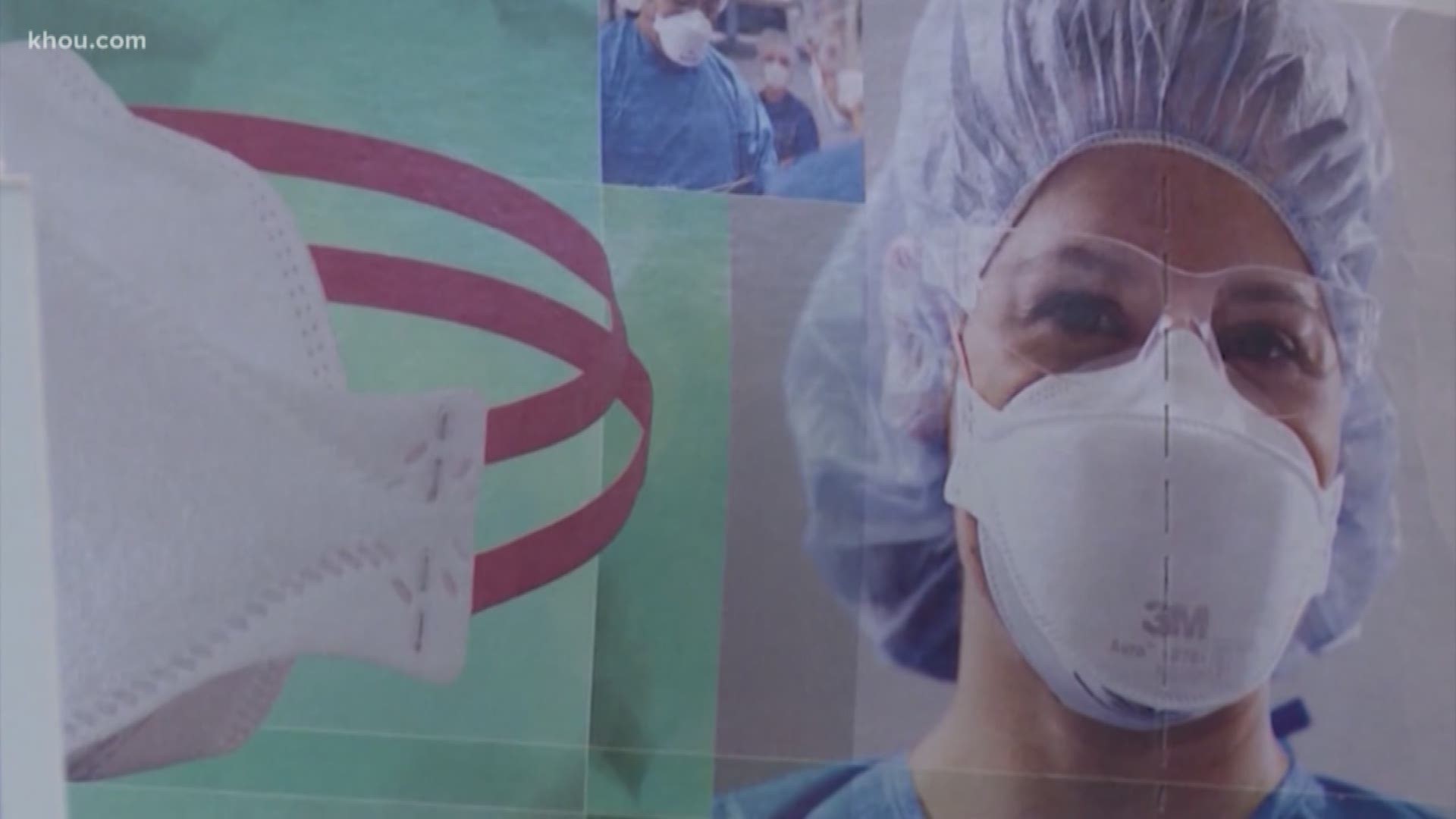HOUSTON — There has been mixed messaging from health and government officials about the use of face masks.
Questions surrounding their effectiveness and who should be wearing them remain.
President Donald Trump discouraged the purchase of manufactured face masks to contain the spread of COVID-19 on Tuesday during a news conference.
“You know we're making millions and millions of masks, but we want them to go to the hospitals,” Trump said. “I mean, one of the things that Dr. (Anthony) Fauci told me today is we don't want them competing. We don't want everybody competing with the hospitals where you really need them.”
Trump suggested that wearing scarves would be an alternative.
“You know, you can use a scarf,” Trump said. “Everybody, a lot of people have scarves. Scarves would be very good. And my feeling is if people want to do it, there's certainly no harm to it. I would say do it, but use a scarf if you want. You know, rather than going out and getting a mask.”
KHOU 11 has not been able to find any research concerning the effectiveness of scarves to prevent COVID-19.
World Health Organization states that it does not recommend the use of homemade masks made from cloth or gauze under any circumstances.
WHO has not advocated for the widespread use of masks by the general public and has said their use could lead to a false sense of security among those who wear them, possibly leading to riskier behaviors during social distancing.
The CDC has also discouraged the use of medical masks among the general public amid the PPE shortages facing medical workers and first responders.
The CDC says there is no research on the effectiveness of homemade masks.
However, some doctors believe any facial covering will provide some level of protection for those who wear them, and well as some level of containment for those who are infected with the virus.
Researchers have pointed to densely-populated Hong Kong located much closer to the origin of the pandemic.
They say Hong Kong has been successful in its containment efforts in a place where wearing masks is a part of daily life.
At a Valero gas station in northeast Houston, the clerk can’t keep enough medical masks in stock.
“Three left,” clerk Ali Khwaja said. “I had a whole box of these two days ago, I got them myself. It’s hard for us to come across, for other people it’s harder.”
A single N-95 mask sells for $8.99 and a three-ply mask costs $3.99. The manufacturer’s sticker price is pre-printed on the labels.
“We don’t mess with the prices,” Khwaja said. “However it comes, that’s how we sell it.”
Coronavirus symptoms
The symptoms of coronavirus can be similar to the flu or a bad cold. Symptoms include a fever, cough and shortness of breath, according to the Centers for Disease Control. Some patients also have nausea, body aches, headaches and stomach issues. Losing your sense of taste and/or smell can also be an early warning sign.
Most healthy people will have mild symptoms. A study of more than 72,000 patients by the Centers for Disease Control in China showed 80 percent of the cases there were mild.
But infections can cause pneumonia, severe acute respiratory syndrome, kidney failure and even death, according to the World Health Organization. Older people with underlying health conditions are most at risk for becoming seriously ill. However, U.S. experts are seeing a significant number of younger people being hospitalized, including some in ICU.
The CDC believes symptoms may appear anywhere from two to 14 days after being exposed.
Human coronaviruses are usually spread through...
- The air by coughing or sneezing
- Close personal contact, such as touching or shaking hands
- Touching an object or surface with the virus on it, then touching your mouth, nose or eyes before washing your hands.
Help stop the spread of coronavirus
- Stay home when you are sick.
- Eat and sleep separately from your family members
- Use different utensils and dishes
- Cover your cough or sneeze with your arm, not your hand.
- If you use a tissue, throw it in the trash.
- Follow social distancing
Lower your risk
- Wash your hands often with soap and water for at least 20 seconds. If soap and water are not available, use an alcohol-based hand sanitizer.
- Avoid touching your eyes, nose, and mouth with unwashed hands.
- Avoid close contact with people who are sick.
- Clean and disinfect frequently touched objects and surfaces.
- If you are 60 or over and have an underlying health condition such as cardiovascular disease, diabetes or respiratory illnesses like asthma or COPD, the World Health Organization advises you to try to avoid crowds or places where you might interact with people who are sick.
Get complete coverage of the coronavirus by texting 'FACTS' to 713-526-1111.

